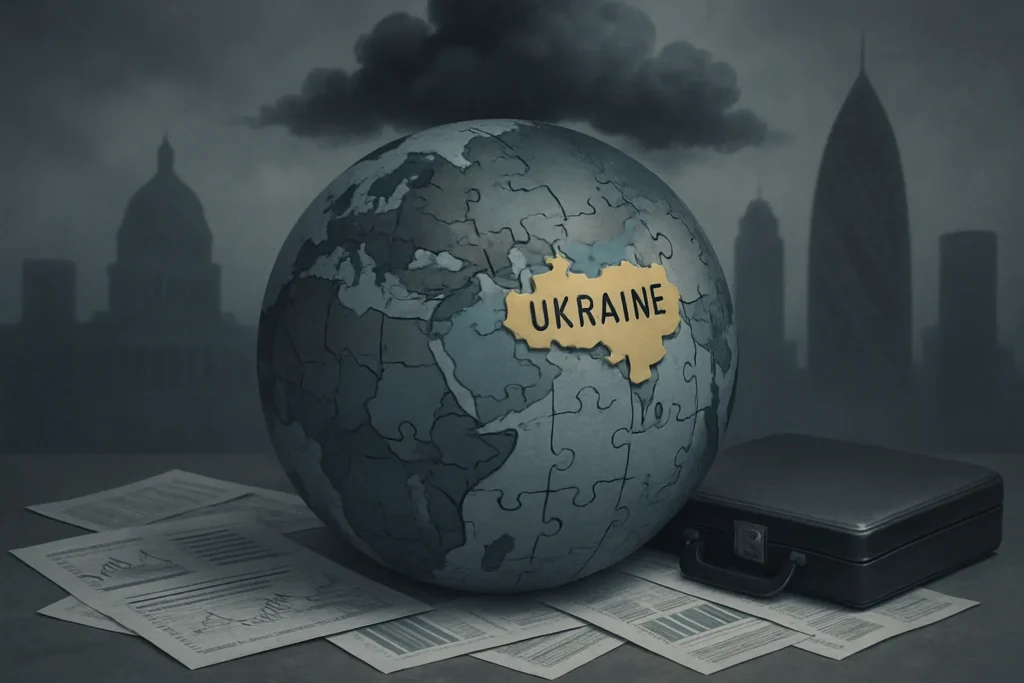When Political Winds Shift, Recovery Stalls
Imagine a war-torn nation clinging to hope, its cities battered but its people refusing to yield—only to see the world’s largest asset manager quietly step away from the table. As BlackRock halted its search for investors for the ambitious Ukraine Development Fund in early 2024, the move didn’t result from battlefield reversals or economic infeasibility. Instead, it was driven by something chillingly mundane: a change at the White House.
Donald Trump’s victory in the US presidential race ushered in fresh uncertainty around American support for Ukraine’s reconstruction. Having spent months assembling a financing package that would pair grants, debt, and equity to unlock more than $15 billion in recovery capital, BlackRock had nearly convinced major European governments—Germany, Italy, Poland—to get on board. Yet when America’s political mood turned away from Kyiv, the initiative lost its anchor, and investor interest promptly fizzled.
Global stability depends on more than financial engineering; it rests on political will. The World Bank estimates Ukraine’s total reconstruction tab will exceed $500 billion—a mountain far taller than what BlackRock’s fund alone could scale. Still, in a region where war’s devastation continues unfurling daily, the sudden withdrawal of America’s financial giants sends ripple effects far beyond the spreadsheets.
The Real Costs: Uncertainty and Unfinished Business
BlackRock’s fund, slated for a high-profile unveiling at the Ukraine Recovery Conference in Rome alongside President Volodymyr Zelensky and Italian Prime Minister Giorgia Meloni, may now become a symbol of what’s at stake when the United States fumbles its role as a leader in global democracy. The company’s spokesperson confirmed: their advisory role ended pro bono in 2024, with no ongoing mandate in Ukraine’s recovery sector.
Ukrainians are left to wonder what reconstruction could look like if American resolve matched their own resilience. According to Harvard economist Sergei Guriev, foreign direct investment flows to Ukraine “have always tracked with perceptions of US leadership and security guarantees more than the technical details of investment instruments.” When uncertainty radiates from Washington—whether through policy signals, delayed arms shipments, or ambiguous statements—the effect is disproportionate: European partners hesitate, private capital recedes, and local communities face delayed or abandoned rebuilding efforts.
Conservative skepticism about Ukraine’s aid is not mere prudence; it is a gamble with human lives and democratic norms. Trump-era rhetoric urging European NATO allies to “do more” has chilled multilateral efforts before, but nothing matches the yanked lifeline of leadership so crucial for Ukraine’s future. As the US froze critical arms deliveries, arguing for stockpile replenishment at home, even supporters wondered if American credibility was on indefinite pause.
“The day Washington hit pause, the rest of us went into free fall,” confided a European diplomat involved in the fund’s early negotiations. “Money and hope both withered at once.”
Beyond that, even as France scrambles to assemble a replacement for BlackRock’s sidelined fund, the effort feels symbolic. Without US commitment, European-led alternatives face limited appeal among global investors. European taxpayers, still reeling from inflation and energy shocks, harbor little appetite for going it alone on a reconstruction project of this scale.
American Leadership: Casualty or Catalyst?
A closer look reveals that BlackRock’s decision wasn’t just a market calculation; it was an emblem of American withdrawal from multilateral problem-solving. It is fair to ask: Why should Wall Street’s titans be expected to anchor Ukraine’s recovery in the first place? The answer, in part, lies with Washington’s historic role marshaling both resources and international confidence. President Joe Biden’s administration pushed through tens of billions in military and economic aid, but Trump’s return—a campaign built on “America First”—reversed course.
Shared burdens have always underpinned progressive internationalism, but retreating from that principle now threatens to fracture alliances, embolden autocrats, and extend the suffering of vulnerable populations. The temptation to treat Ukraine as a distant, regional dispute misses the reality of interconnected security and humanitarian interests. If America abdicates its role, reconstruction becomes more difficult, instability lingers, and the global order grows more precarious—a scenario celebrated only by those who profit from discord.
It takes only a glance at postwar Europe to grasp what’s at risk. The Marshall Plan, crafted in the late 1940s by US officials and supported across party lines, helped Western Europe rebuild not just its economy but also the foundation of liberal democracy. That bold investment paid unfathomable dividends, anchoring peace and prosperity on the continent for generations. Today’s hesitation stands in stark contrast.
What can break this cycle of paralysis? Reaffirming that democracy and stability anywhere inevitably bolster well-being everywhere. Europe’s cautious progress on a replacement fund can only go so far. The world is watching if Washington will rediscover its sense of purpose. For Americans committed to equality, freedom, and rule of law, abandoning Ukraine’s reconstruction risks far more than economic opportunity—it erodes the collective moral fabric that has historically distinguished the US on the world stage.
The bottom line: BlackRock’s withdrawal is not simply transactional. It marks a pivot point in both American foreign policy and global recovery initiatives. The stakes extend beyond Ukraine’s borders and Wall Street boardrooms—they reach into every country clinging to hope that democratic values still matter in our interconnected world. Will we step up, or simply step aside?

